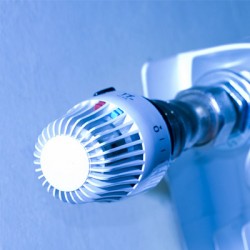Boiler/Heating Engineers in Wembley
AquaHeat Plumbing & Heating Solutions is your go-to provider for all plumbing a... read more »
S & B Design And Build Ltd is a distinguished construction company nestled in the bustling area of Southall, providing a... read more »
Welcome to A.J Heating and Plumbing, your trusted partner for all your plumbing and heating needs in St Albans and across Hertfordshire.... read more »
Welcome to Steve Ball Plumbing And Heating Ltd, your trusted partner for all plumbing and heating needs in The Camp and across Hertfordsh... read more »
Welcome to Empire Contractors Co Ltd, your go-to choice for top-notch building and renovation services in Hillingdon, London. As a leadin... read more »
Save Your Energy Ltd is a reputable and experienced company based in Holywell, proudly serving the Hertfordshire area. W... read more »
Max Gas Heating Ltd: Your Trusted Tradespeople in Hillingdon, London
Welcome to Max Gas Heating Ltd, your go-to... read more »
Welcome to Barbosa Ferreira Construction LTD, your go-to experts for all construction and renovation needs in Bushey Mead and the wider M... read more »
Welcome to Romel, your trusted partner for all your home improvement needs in Furzedown and across Lambeth, London. As a leading provider... read more »
Welcome to K-Tek Plumbing Ltd, your go-to solution for all your plumbing and electrical needs in Leamouth and the wider Tower Hamlets are... read more »
Welcome to Magic Electrical Connections UK, your go-to solution for all your tradespeople needs in Burnt Oak and the wider Barnet, London... read more »
Welcome to Metropolitan Gas Company, your go-to experts for all things plumbing and heating in North Cheam and the wider Sutton, London a... read more »
Welcome to KKS UK Ltd, your go-to solution for all tradespeople services in Berrylands and the wider Kingston upon Thames, London area. O... read more »
West London Gas And Plumbing LTD is a premier service provider based in North Hyde, offering exceptional plumbing, boile... read more »
Welcome to Greenhouse Heating Ltd, your go-to experts for plumbing and heating services in Plaistow and the bustling Newham area of Londo... read more »
Welcome to A Plumbers, the trusted plumbing experts based in Edmonton, proudly serving the vibrant community of Enfield, London. Our skil... read more »
LCG London LTD: Premier Tradespeople Services in Brent, London
Welcome to LCG London LTD, your trusted partner f... read more »
Heritage Carpentry And Redesign, nestled in the charming town of Chertsey, is your go-to expert for all things related t... read more »
Search Boiler/Heating Engineers in places nearby
Understanding the Role of Boiler/Heating Engineers in Wembley
Boiler and heating engineers play a crucial role in ensuring the comfort and safety of homes and businesses in Wembley. These skilled professionals are responsible for the installation, maintenance, and repair of heating systems, which are essential for providing warmth and hot water. In this article, we will explore the various aspects of their work, the skills they possess, and the importance of their services in the Wembley area.
The Importance of Heating Systems in Wembley
Wembley, like much of the UK, experiences a range of weather conditions, with cold winters necessitating efficient heating systems. A reliable heating system is not just a luxury but a necessity for maintaining a comfortable living environment. Boiler and heating engineers ensure that these systems function optimally, providing warmth and hot water when needed.
Types of Heating Systems
- Central Heating Systems: These systems distribute heat from a central source, such as a boiler, to various rooms in a building.
- Underfloor Heating: A modern and efficient method of heating, where heat is distributed through pipes or electric mats beneath the floor.
- Radiant Heating: Utilises infrared radiation to heat objects and people directly, rather than the air.
Key Responsibilities of Boiler/Heating Engineers
Boiler and heating engineers in Wembley are tasked with a variety of responsibilities to ensure heating systems are safe and efficient. Their duties include:
Installation of Heating Systems
Engineers are responsible for installing new heating systems, ensuring they are set up correctly and safely. This involves selecting the appropriate system for the building, installing it according to manufacturer specifications, and ensuring compliance with local regulations.
Maintenance and Servicing
Regular maintenance is crucial for the longevity and efficiency of heating systems. Engineers perform routine checks, clean components, and replace worn parts to prevent breakdowns and ensure optimal performance.
Repairs and Troubleshooting
When heating systems malfunction, engineers diagnose the problem and carry out necessary repairs. Their expertise allows them to identify issues quickly and implement effective solutions, minimising downtime and inconvenience for residents and businesses.
Skills and Qualifications of Boiler/Heating Engineers
Boiler and heating engineers possess a range of skills and qualifications that enable them to perform their duties effectively. These include:
Technical Expertise
Engineers must have a thorough understanding of heating systems, including their components and operation. This knowledge is essential for diagnosing issues and performing repairs.
Problem-Solving Skills
Effective troubleshooting requires strong problem-solving skills. Engineers must be able to identify the root cause of an issue and determine the best course of action to resolve it.
Communication Skills
Engineers must communicate effectively with clients, explaining technical issues in simple terms and providing clear instructions for system operation and maintenance.
Relevant Qualifications
In the UK, boiler and heating engineers typically hold qualifications such as NVQs or City & Guilds certificates in plumbing and heating. They may also be registered with professional bodies like Gas Safe, which ensures they meet industry standards for safety and competence.
Choosing the Right Boiler/Heating Engineer in Wembley
When selecting a boiler or heating engineer in Wembley, it's important to consider several factors to ensure you receive quality service. Here are some tips for making the right choice:
Check Qualifications and Certifications
Ensure the engineer is qualified and holds relevant certifications, such as Gas Safe registration. This guarantees they have the necessary skills and knowledge to work safely and effectively.
Experience and Reputation
Look for engineers with a proven track record and positive reviews from previous clients. Experienced engineers are more likely to provide reliable and efficient service.
Cost and Value
While cost is an important consideration, it shouldn't be the only factor. Consider the value of the service provided, including the quality of work and level of customer support.
Availability and Response Time
Choose an engineer who is readily available and can respond quickly to emergencies. Prompt service is crucial for minimising disruption and ensuring your heating system is back up and running as soon as possible.
Frequently Asked Questions
What should I do if my boiler stops working?
If your boiler stops working, check the power supply and thermostat settings first. If the issue persists, contact a qualified boiler/heating engineer to diagnose and repair the problem.
How often should I service my boiler?
It's recommended to service your boiler annually to ensure it operates efficiently and safely. Regular servicing can also help prevent costly breakdowns.
What are the signs of a faulty heating system?
Common signs include unusual noises, inconsistent heating, and increased energy bills. If you notice any of these issues, contact a heating engineer for an inspection.
Can I install a new boiler myself?
Installing a boiler requires specialised knowledge and skills. It's important to hire a qualified engineer to ensure the installation is safe and complies with regulations.
How can I improve my heating system's efficiency?
Regular maintenance, using a programmable thermostat, and insulating your home can improve your heating system's efficiency and reduce energy costs.
What is the Gas Safe Register?
The Gas Safe Register is the official list of gas engineers who are qualified to work safely and legally on gas appliances. Always check that your engineer is registered before hiring them.
The Future of Heating Systems in Wembley
The heating industry is constantly evolving, with new technologies and innovations improving efficiency and sustainability. In Wembley, there is a growing focus on eco-friendly heating solutions, such as heat pumps and solar thermal systems, which reduce carbon emissions and energy consumption.
Renewable Energy Sources
Renewable energy sources, such as solar and wind, are becoming increasingly popular for heating applications. These technologies offer a sustainable alternative to traditional fossil fuels, helping to reduce environmental impact.
Smart Heating Systems
Smart heating systems allow users to control their heating remotely via smartphones or tablets. These systems offer greater convenience and can help optimise energy usage, reducing costs and improving efficiency.
Government Initiatives and Incentives
The UK government is committed to reducing carbon emissions and promoting sustainable energy solutions. Various initiatives and incentives are available to encourage the adoption of energy-efficient heating systems, making it easier for residents and businesses in Wembley to make the switch.
In conclusion, boiler and heating engineers in Wembley play a vital role in ensuring the comfort and safety of homes and businesses. Their expertise and skills are essential for the installation, maintenance, and repair of heating systems, which are crucial for providing warmth and hot water. By choosing a qualified and experienced engineer, residents and businesses can ensure their heating systems operate efficiently and reliably, contributing to a comfortable and sustainable living environment.
























